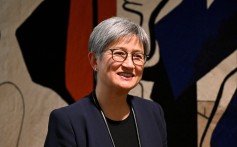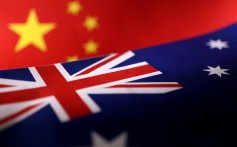by Ganesh Sahathevan

Michelle Chan
First, recall that even Singapore decided it was best to de-couple from China, for simple, ordinary security reasons:
Singapore's Trade Minister Chan taking advantage of the coronavirus crisis to wean his country's economy of China
This on the other hand from DFAT:
Australia’s Department of Foreign Affairs and Trade (DFAT) and its treasury department jointly administered two studies, one in 2015 and another in 2020, both of which concluded “no other markets could replace China as a market for Australian commodity exports”, one source said. Both spoke on the condition of anonymity due to the sensitive nature of the topic.
TO B E READ WITH
ExclusiveAustralia concludes China decoupling ‘impossible’ after carrying out series of classified studies
- Separate administrations conducted investigations into the feasibility of ‘diversifying’ import-export relationship, all resolved such a decoupling would be unmanageable
- Current relations came after years of networking by exporters and cannot be replicated elsewhere, analysts say
Australian authorities conducted three separate internal studies in the past eight years to determine whether the commodity-exporting nation could completely diversify its supply chains from China – but all said the task was impossible, according to two sources with knowledge of the matter.
The unanimous and non-partisan judgment helped to justify Canberra’s renewed trade engagement with Beijing late last year despite obstacles such as Aukus, a regional security pact between Australia, the United Kingdom and the United States.
Australia’s Department of Foreign Affairs and Trade (DFAT) and its treasury department jointly administered two studies, one in 2015 and another in 2020, both of which concluded “no other markets could replace China as a market for Australian commodity exports”, one source said. Both spoke on the condition of anonymity due to the sensitive nature of the topic.
The first study was ordered by Prime Minister Tony Abbott, as his cabinet decided to act on a US warning in 2012 that growing economic and trade dependence would make Australia vulnerable to Chinese pressure.
“Abbott was always suspicious of the motives of Communist China,” the person said. “He is famous for describing the Australian relationship with China as based on ‘fear and greed’.”
China is a major buyer of Australian iron ore, liquefied natural gas and agricultural products. Bilateral trade, which totalled US$152.9 billion last year, is widely believed to be a bedrock in relations and a means of avoiding total breakdown.
Australia’s former treasurer Josh Frydenberg “vetoed” the release of a public version of either report because “it did not fit in with the China narrative of the Morrison government”, according to the source.
“However, the reports are well known in official circles in Australia.”
Telling … Australian exporters to ‘diversify’ is both silly and insulting
Another source added that at high levels of the Australian government, there is an understanding that it is not feasible to move away from China entirely.
It is common for the government to run internal studies “for practical and less practical (political) reasons”, the source added.
All three studies are classified, and the Post was not able to obtain copies of the reports. Neither DFAT nor the Australian Treasury replied to the Post’s requests for comment.
Australia and China to restart dialogue after 3-year hiatus2 Sep 2023
“Telling these Australian exporters to ‘diversify’ is both silly and insulting,” said James Laurenceson, director of University of Technology Sydney’s Australia-China Relations Institute.
Data from the institute showed that among the three major Australian export goods – lithium, iron ore and lobster – China’s imports account for a respective 84, 69 and 80 per cent of the world total.
Laurenceson said that in areas where Australian exporters are selling into competitive global markets, like for coal or barley, diversification is “borderline irrelevant.”
“This is because if China closes its market (as it did in 2020), Australian exporters can very easily and very quickly find alternatives,” he added. “They don’t need to ‘diversify’ because global markets will simply redirect their output.”
“Accessing the China market has taken decades for many exporters, building relationships, networks and understanding the laws and culture,” he added. “Australian business is a long way from that level of engagement in Asia.”
The Australian government has also named India as a top three export market by 2035, as the country is set to be the third-largest Asian destination for outward Australian investment.
Shangri-La Dialogue: Australia-China defence ministers meet amid improving bilateral ties3 Jun 2023
“Diversifying away from China in the supply chain would be tough,” said Dong Xuyang, an analyst at Climate Energy Finance, an independent think tank in Sydney.
“Whether people like it or not, the reality is that China is dominating the global renewable industry as a result of insufficient effort from the rest of the world. And China is producing these products at the scale and speed the global energy transition needs.”



No comments:
Post a Comment